Premium Only Content
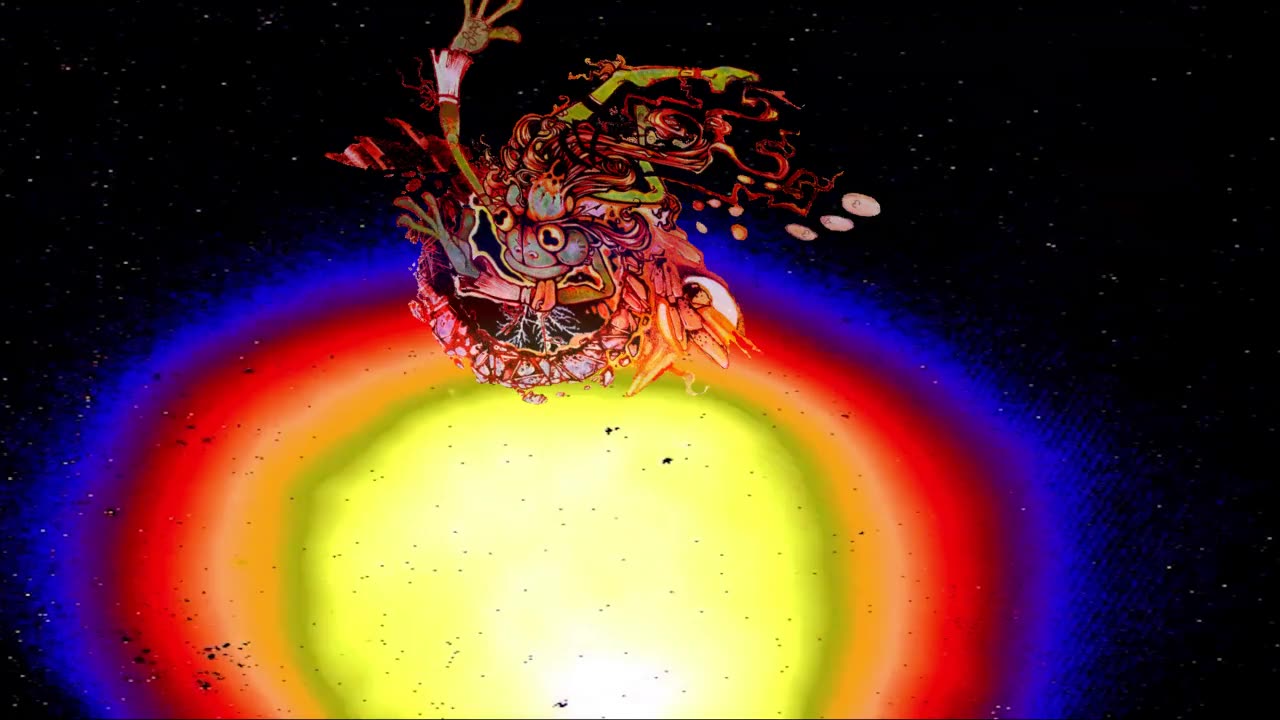
De Do Do Do, De Da Da Da Roxanne Canary In A Coalmine The Police
De Do Do Do, De Da Da Da Album: Zenyatta Mondatta (1980)
Roxanne Album: Outlandos d'Amour (1978)
Canary In A Coalmine Album: Zenyatta Mondatta (1980)
by The Police
De Do Do Do, De Da Da Da is about the way politicians, priests, entertainers, and others in power use words to manipulate people. Sting called it "an articulate song about being inarticulate."
Sting wrote De Do Do Do, De Da Da Da when he became interested in songs with nonsense lyrics, like "Do Wah Diddy Diddy," "Tutti Frutti," and "Da Doo Ron Ron." He wanted to find out why they work and write one of his own. He claimed it was his son who came up with the title.
Sting claims that people who dismiss De Do Do Do, De Da Da Da have not bothered to listen to the lyrics. He said in a 1981 interview with the NME: "Certainly what we're producing is not elitist High Art: But; equally; I think entertainment's an art. I think my songs are fairly literate - they're not rubbish. 'De Do Do Do', for example, was grossly misunderstood: the lyrics are about banality, about the abuse of words. Almost everyone who reviewed it said, 'Oh, this is baby talk.' They were just listening to the chorus alone, obviously. But they're the same people who would probably never get through the first paragraph of Finnegan's Wake, because that's 'baby talk' too."
The Police remixed De Do Do Do, De Da Da Da in 1986 when they reunited to create new versions of their old songs. The sessions were a disaster, and the remix of this was never released. The only song they did rerelease was a new version of "Don't Stand So Close To Me." Sting wanted to remix this in 1986 to put more emphasis on the lyrics. He felt it was often misinterpreted.
De Do Do Do, De Da Da Da was used on the pilot of the TV medical drama St. Elsewhere, starring Ed Begley Jr. and Howie Mandel, in 1982. It was also featured in the 1980 coming-of-age comedy movie The Last American Virgin, starring Lawrence Monoson.
The music video for De Do Do Do, De Da Da Da, directed by Derek Burbidge, shows Sting and Andy Summers bundled up and playing on a snowy Canadian hillside while Stewart Copeland films them with a Super-8 camera. Copeland's camera really was rolling; the footage can be seen in his 2006 documentary Everyone Stares: The Police Inside Out.
This song is about a man who falls in love with a prostitute and gets all Pretty Woman on her, telling her she deserves better and should find a more decent profession. Sting got the idea after walking through the red-light district of Paris when the band was in town to play a club called The Nashville, where he saw prostitutes for the first time. He imagined what it would be like to fall in love with one of them, figuring some of them must have boyfriends.
This was the first major-label release by The Police, who were struggling at the time. A year earlier, they released the single "Fall Out" on an independent label owned by Stewart Copeland's brother (and the band's manager), Miles. It was a flop, and the group felt a lot of pressure to produce something that would keep them off the dole.
When they convened at Surrey Sound Studios outside of London in January 1978, it was with a new guitarist, Andy Summers, as original member Henry Padovani quit the band. They recorded "Roxanne" with producer Nigel Gray, who owned the studio. Sting liked the song but didn't think it would be a hit, as it was far more brooding than their other material. Miles Copeland thought differently - he was far more impressed with "Roxanne" than with anything else they recorded at those sessions, and insisted it be the single. Miles got a distribution deal for the song with A&M Records, getting no advance, only royalties from sales.
Roxanne was released in the UK on April 7, 1978, but didn't garner much attention. It was also largely ignored in the US when it was released there on February 24, 1979, but The Police soldiered on with a tour of America anyway. When a disc jockey in Austin stared playing the song, it got a great response and other radio stations added it to their playlists. The song became a minor hit, peaking at #32 on April 28. It also got some attention in the UK around this time, peaking at #12 on May 19, 1979, over a year after it was first released.
The intro to Roxanne contains one of the great happy accidents in rock history. There was an upright piano in the studio, which Sting sat on thinking the lid was closed. Tape was rolling for his vocal, so the sound of his butt hitting the piano and his subsequent laughter were recorded. These sounds were mixed into the intro, providing a unique texture.
Sting chose the name Roxanne when, after watching the prostitutes in Paris, he spotted a poster for the play Cyrano de Bergerac. The title character, a swordsman of great wit with an enormous nose, is in love with a woman named Roxanne but afraid to approach her directly, worried his schnoz will turn her away.
"Those two conflicting ideas - of this beautiful name and this very, very elegant, courtly romance and what was going on in the hotel - just lit a torch under me," he told People in 2023. "I went to my room, picked up the guitar and imagined this woman into life."
As a side note, every time this song played, it pissed off my ex because this is how everyone in America pronounced her name Roxana... which if stated in proper Romanian/Dacian dialect sure as hell ain't "Roxanne".
Police guitarist Andy Summers made a key contribution to this song. In an interview with Summers, he explained: "'Roxanne' is so identified by that guitar at the beginning - the first verse before he starts singing. It's immediately identifiable."
The Police performed Roxanne when they were inducted into the Rock and Roll Hall of Fame in 2003. With the exception of a drunken jam at Sting's wedding in 1992, it was the first time they played together since they broke up in 1986 over personal differences. At the ceremony, guitarist Andy Summers joked, "I'd like to make it very clear that there is no ego in our band whatsoever."
The beat on Roxanne is a classic fusion of rock and reggae, but Sting considers is more of a tango.
In 1987, Steve Martin and Daryl Hannah starred in the movie Roxanne, which is based on the Cyrano DeBergerac story of a dramatist with a big nose who falls for a beautiful woman. The song was not used in the film.
The BBC didn't play Roxanne, so The Police spread the word that it was banned from the network because of its subject matter, a story that helped build their reputation as punk rock revolutionaries.
What was it like for The Police having their first hit be a song about a prostitute? Drummer Stewart Copeland states: "To the extent that there was cause for concern would be the extent to which we got a thrill from it. We were a punk band, officially. That was our mission, that was our purpose."
Sting performs Roxanne at most of his concerts, as it's one of his favorites and it always gets a great audience response. He played it at Live Aid in 1985.
In the 1982 movie 48 Hours, Eddie Murphy sings a very off-key version of Roxanne in a jail cell.
Roxanne is the basis for a popular drinking game of the same title: men drink when it says "Roxanne," women drink when it says "Red Light."
The band made a video for Roxanne, but there's no Roxanne in it. Directed by Derek Burbidge, it shows performance footage.
When The Police reunited in 2007, their first public performance came at the Grammy Awards, where they played this to open the show.
A version of Roxanne by San Francisco singer-songwriter Juliet Simms debuted at #86 on the Hot 100 in April 2012 after she performed the song on the reality music show The Voice.
The original sheet of lyrics for Roxanne is decorated with Sting's random doodles, most dealing with the passage of time. They are "three clocks - one at five to four, another at ten past six, and one sidelong that looks to be showing eight o'clock - a sundial, an hourglass, five sets of five-bar gates that prisoners use to mark the passing of days, some kind of whirlwind vortex spinning in the top right-hand corner, and a spear or an arrowhead. I imagine I was drawing these as I was listening back to various takes of the vocals, but I don't know what they mean," Sting wrote in Lyrics By Sting. (These illustrations can be seen on the back cover of the book).
"I sing 'Roxanne' every night," Sting told Daniel Rachel for the 2013 book The Art of Noise: Conversations with Great Songwriters. "There's always a little inflection that is new or a possibility that opens it out. It's not my job to reproduce a record that was made thirty years ago. I use that and I respect that, but it's only a template. It's that jazz mentality. You use the head of the song just as a starting point."
A remake of Roxanne was featured in the 2001 movie Moulin Rouge. Christian (Ewan McGregor) sings this about Satine (Nicole Kidman) when he becomes enraged in a fit of jealousy. And guess what? They made it into a tango, so this song can no longer be mistaken for a reggae beat... Sting must be very proud.
On the 2001 Friends episode "The One With Monica's Boots," Phoebe (Lisa Kudrow) and Ross (David Schwimmer) sing Roxanne as "Ross-Can" as he tries to secure tickets to a Sting concert.
The song also shows up in these TV series:
Raising Hope ("The Old Girl" – 2013)
Community ("Remedial Chaos Theory" – 2011)
Two And A Half Men ("Winky-Dink Time" – 2008)
The Office ("Phyllis' Wedding" – 2007)
Big Love ("A Barbecue For Betty" – 2006)
CSI: Crime Scene Investigation ("Random Acts Of Violence" – 2003)
Zenyatta Mondatta is the third studio album released on 3 October 1980 by A&M Records. It was co-produced by the band and Nigel Gray. Side One Track 4 is Canary in a Coalmine.
Stewart Copeland said that the group arrived at the album's title after deciding it should roll off the tongue. Zenyatta and Mondatta are invented words, hinting at Zen, at Jomo Kenyatta, at the French for 'the world' (le monde), and at reggatta, from the title of the previous Police album, Reggatta de Blanc. As Copeland explained:
It means everything. It's the same explanation that applies to the last two. It doesn't have a specific meaning like "Police Brutality" or "Police Arrest", or anything predictable like that. Being vague it says a lot more. You can interpret it in a lot of different ways. It's not an attempt to be mysterious, just syllables that sound good together, like the sound of a melody that has no words at all has a meaning. Miles (Stewart Copeland's brother and group manager) came up with "Trimondo Blondomina". Very subtle. Geddit? Like three blondes and the world. Then somebody thought of "Caprido Von Renislam". That rolls off the tongue. It was the address of the studio (Catharina van Renneslaan in Hilversum, The Netherlands).
Jerry Moss, co-founder of A&M Records, named the champion racehorse Zenyatta (born 2004) after the album. Blizzard Entertainment also named a character Zenyatta (and his brother, non-playable character – Mondatta) in the video game Overwatch. Additionally, in the English translation of the manga Stardust Crusaders published by VIZ Media, the characters Oingo and Boingo are renamed Zenyatta and Mondatta due to copyright laws.
-
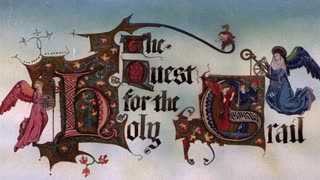 9:37
9:37
Psychological operations
8 hours agoChanges In Latitudes Changes In Attitudes Son Of A Son Of A Sailor Jimmy Buffett
11 -
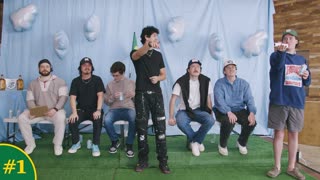 40:09
40:09
Friday Beers
1 hour agoWii Golf Gets Heated: Friday Beers vs Full Squad Gaming
859 -
 58:35
58:35
BonginoReport
4 hours agoFormer Trans Athlete Accepts Biological Reality - Nightly Scroll w/Hayley Caronia (Ep.24) - 04/10/25
93.4K49 -
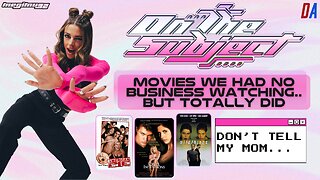 LIVE
LIVE
megimu32
2 hours agoON THE SUBJECT: Movies We Had Zero Business Watching.. But Totally Did!
97 watching -
 1:26:01
1:26:01
Kim Iversen
5 hours agoThe Fight Is ON: Grifters, Gatekeepers & Government Overreach
104K183 -
 2:16:31
2:16:31
Redacted News
4 hours agoLeaked Audio EXPOSES AIPAC's Shocking Grip on Trump's National Security Team and Inner Circle
167K90 -
 1:13:38
1:13:38
Dr. Drew
9 hours agoSalty Cracker: Tariffs & Deportations & 3rd Trump Term, Oh My! – Ask Dr. Drew
56.8K54 -
 55:18
55:18
LFA TV
9 hours agoUndoing Decades of Corruption Won’t Come Easy | TRUMPET DAILY 4.10.25 7PM
21.9K1 -
 59:07
59:07
theDaily302
11 hours agoThe Daily 302- James Patrick
17.2K1 -
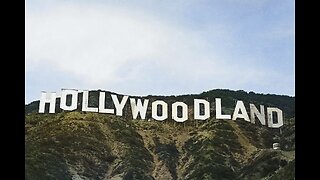 LIVE
LIVE
Quite Frankly
7 hours ago"Top 10 CIA Ops, Esoteric Hollywood, and More" ft. Jay Dyer 4/10/25
818 watching